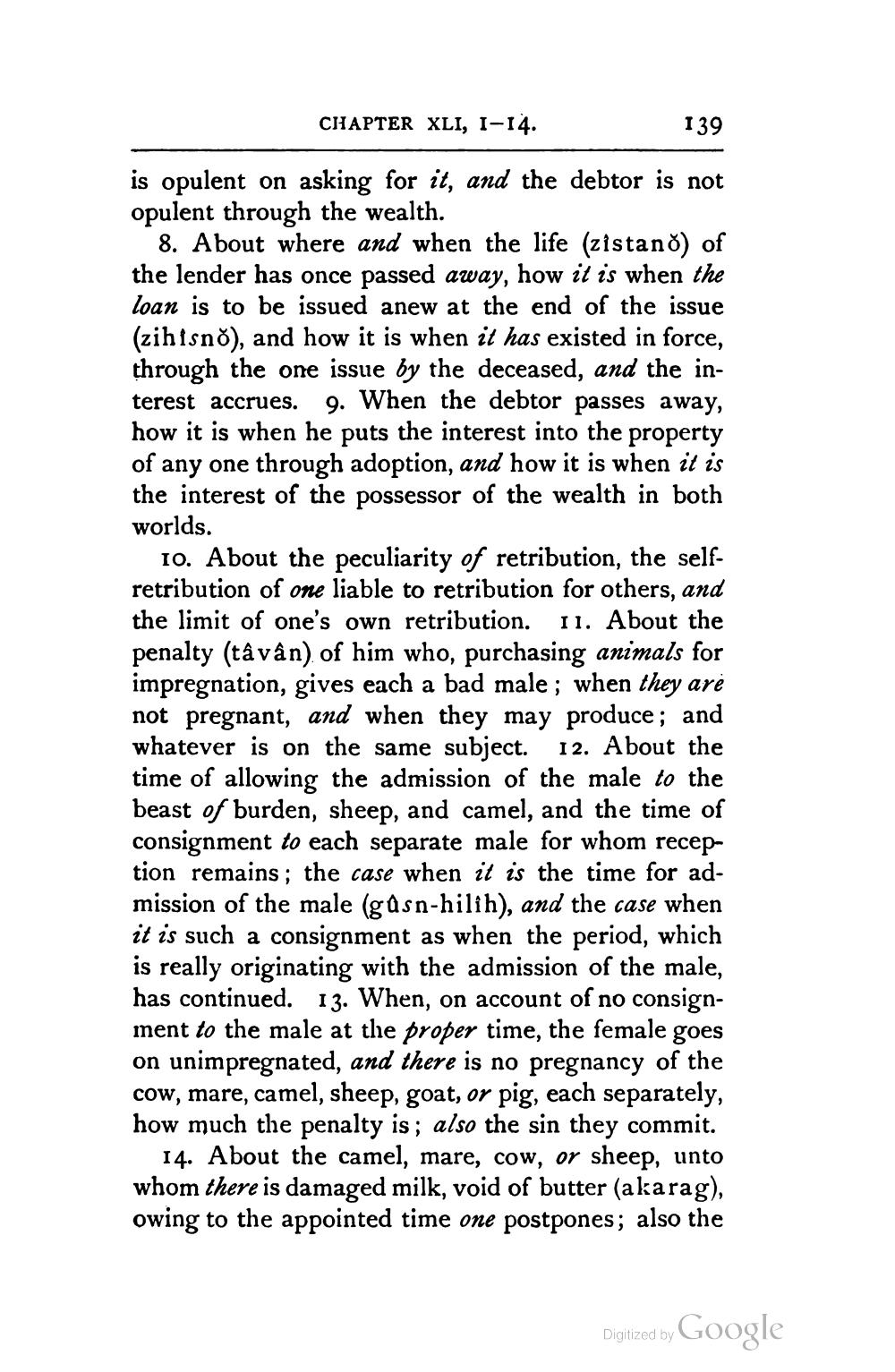________________
CHAPTER XLI, 1-14.
139
is opulent on asking for it, and the debtor is not opulent through the wealth.
8. About where and when the life (zistano) of the lender has once passed away, how it is when the loan is to be issued anew at the end of the issue (zihisno), and how it is when it has existed in force, through the one issue by the deceased, and the interest accrues. 9. When the debtor passes away, how it is when he puts the interest into the property of any one through adoption, and how it is when it is the interest of the possessor of the wealth in both worlds.
10. About the peculiarity of retribution, the selfretribution of one liable to retribution for others, and the limit of one's own retribution. 11. About the penalty (tâvân) of him who, purchasing animals for impregnation, gives each a bad male; when they are not pregnant, and when they may produce; and whatever is on the same subject. 12. About the time of allowing the admission of the male to the beast of burden, sheep, and camel, and the time of consignment to each separate male for whom reception remains; the case when it is the time for admission of the male (gasn-hilih), and the case when it is such a consignment as when the period, which is really originating with the admission of the male, has continued. 13. When, on account of no consignment to the male at the proper time, the female goes on unimpregnated, and there is no pregnancy of the cow, mare, camel, sheep, goat, or pig, each separately, how much the penalty is; also the sin they commit.
14. About the camel, mare, cow, or sheep, unto whom there is damaged milk, void of butter (akarag), owing to the appointed time one postpones; also the
Digitized by Google




